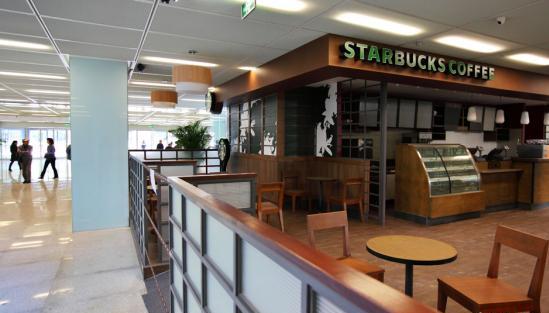High rent to bite foreign firms in China
Updated: 2013-07-05 13:42
(peopledaily.com.cn)
|
|||||||||||
|
 |
|
Starbucks closed its first coffee shop in Chinese mainland in late June. [Photo/china news.com] |
In January 1999 when café was still a new fashion in Beijing, Starbucks chose the China World Shopping Mall at the heart of Beijing's central business district to open its first store in Chinese mainland.
However, 14 years later, the American coffee company had to move out the shopping center in late June and the vacancy left by Starbucks is going to be filled by French luxury trunk maker Goyard.
Although Starbucks said a new store would be open nearby and the new location is much better, insiders agreed that the fast growing rent is the key factor to drive it out.
It's estimated that Starbucks has to pay more than 7 million yuan ($1.14 million) annually to maintain the business in China World Shopping Mall, mostly for the rent and labor cost, while the average annual turnover of Starbucks' stores in Asian market was 5 million yuan in 2012.
Starbucks is not the only one that is running away in face of the skyrocketing business cost. Foreign retailers, restaurants and department stores have to close or relocate their shops to offset the double pressure of shrinking profit and rising rent in Chinese market.
The retail giant Wall-Mart shut down three Chinese stores in April, increasing the number of closed shops to six over the past three years. One month later, British retailer Tesco ended the business of a 10-year-old store in Shanghai's Zhenning Road because the lease contract ran out.
It's noteworthy that the locations abandoned by foreign multinationals were almost in first-tier cities where their Chinese story began. High rent is expected to hit more Starbucks shops in Beijing and Shanghai.
After closing the Zhenning store, Tesco said it would continue to seek chance to open new store in Shanghai or in other Chinese cities. But analysts said these foreign companies would look beyond big cities and pin hope on second and third-tired Chinese cities for further expansion.
Related Stories
Rent devours paychecks in Beijing 2013-07-03 09:30
Public bathroom rented out as game rooms 2013-06-21 14:16
Grade-A office rent in Beijing unchanged 2013-05-21 13:32
China allocates $1.3b for low-rent housing 2013-05-16 10:08
Soaring Beijing agent rent 'fees' face ban 2013-05-14 11:04
Grade A office rents under pressure after years of rises 2013-05-13 07:18
Today's Top News
China's inflation grows 2.7% in June
US mulls hastening withdrawal from Afghanistan
Laden's life on the run revealed
Air crash victims'parents leave for US
Premier Li lauds Guangxi's potential
Mining firm confirmed to have polluted S China river
Legislation urged to guarantee nuclear security
Ex-rail chief sentenced
Hot Topics
Lunar probe , China growth forecasts, Emission rules get tougher, China seen through 'colored lens', International board,
Editor's Picks

|

|

|

|

|

|





